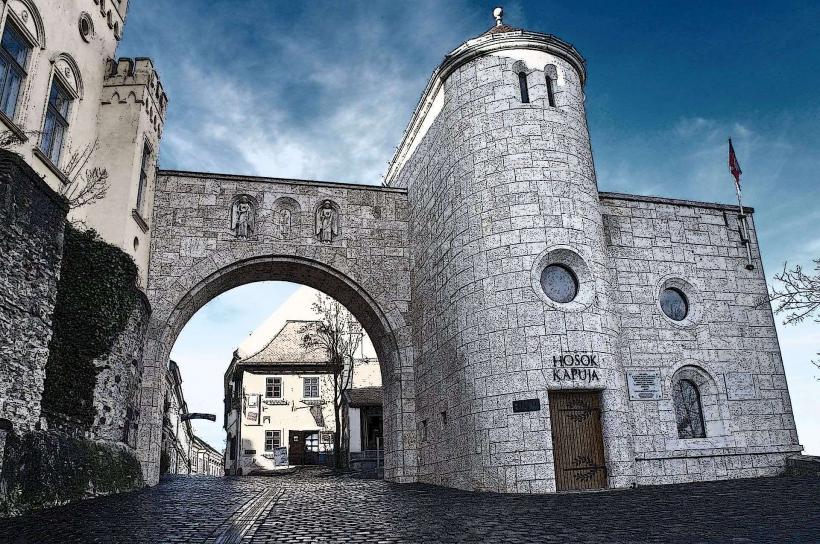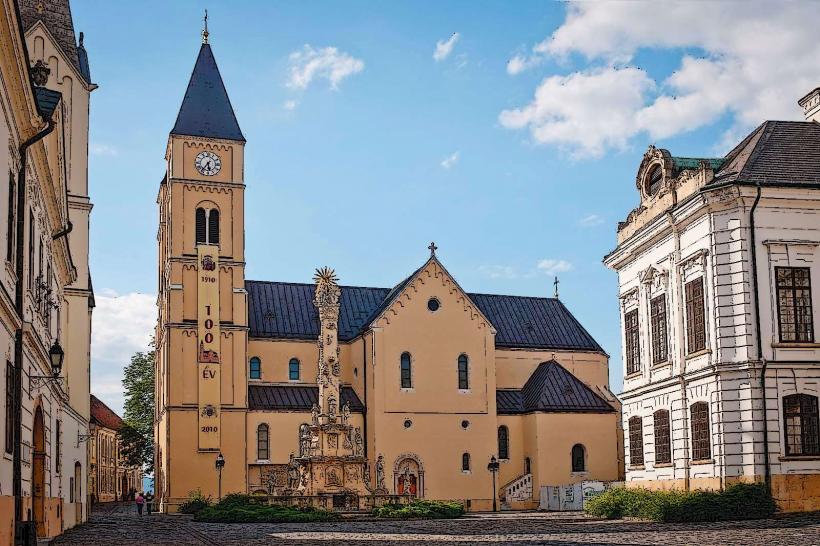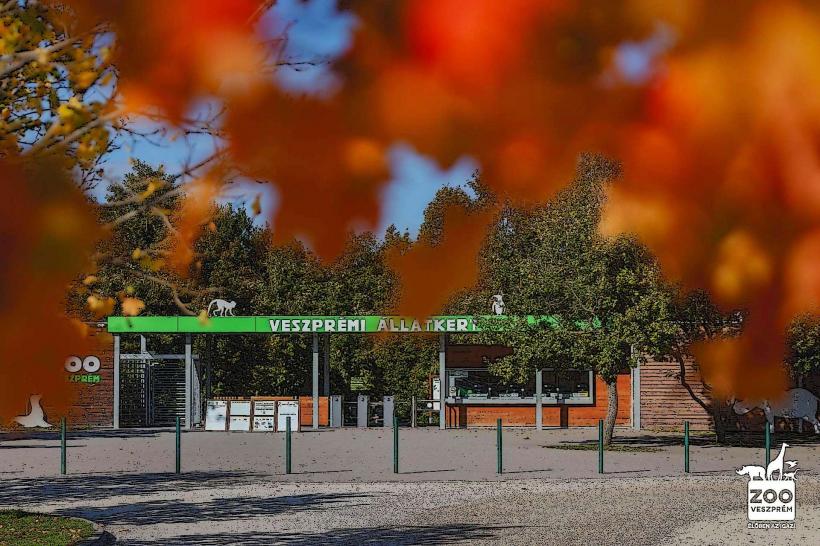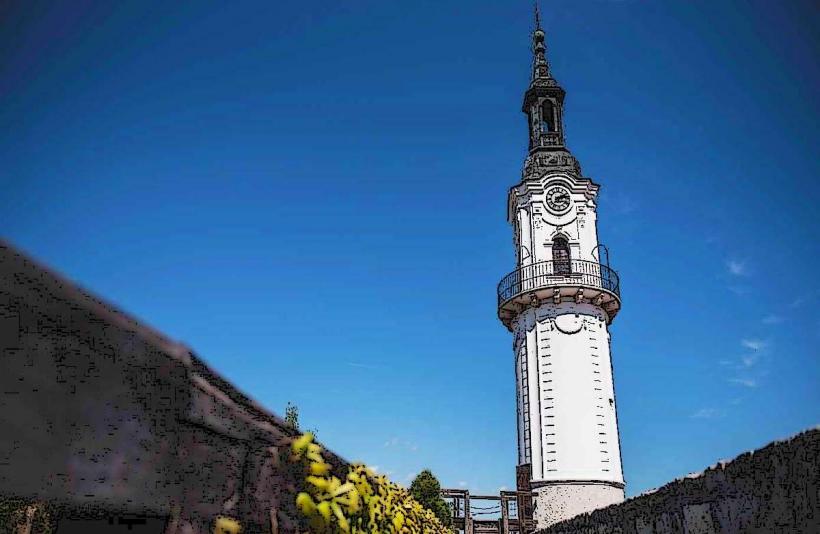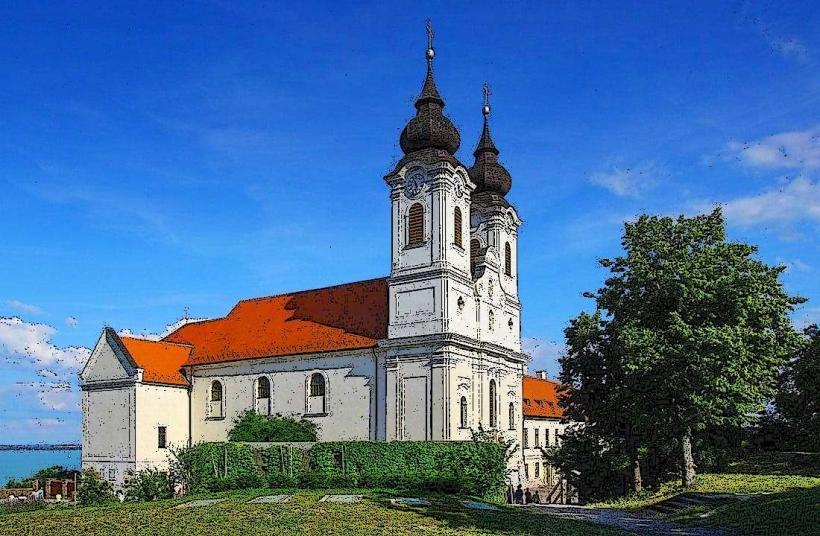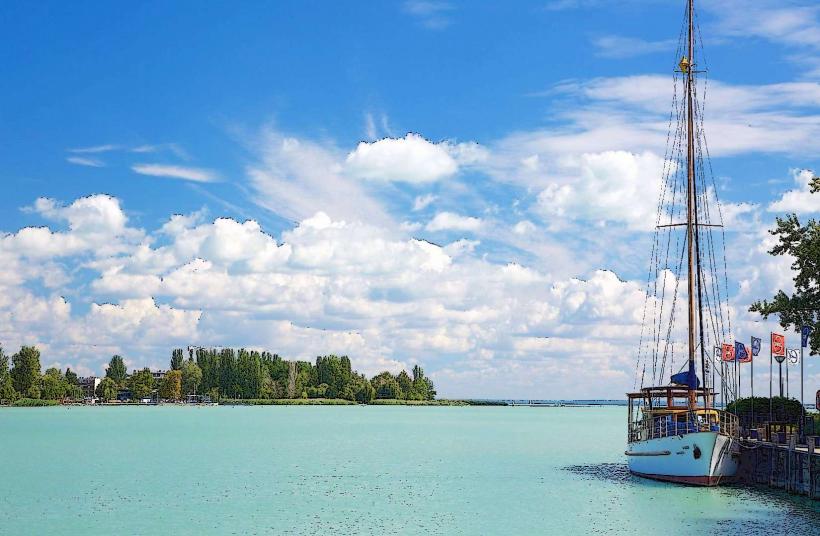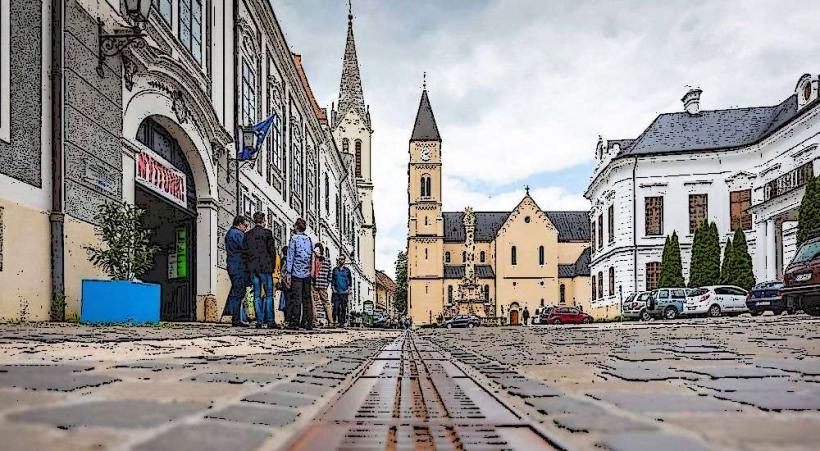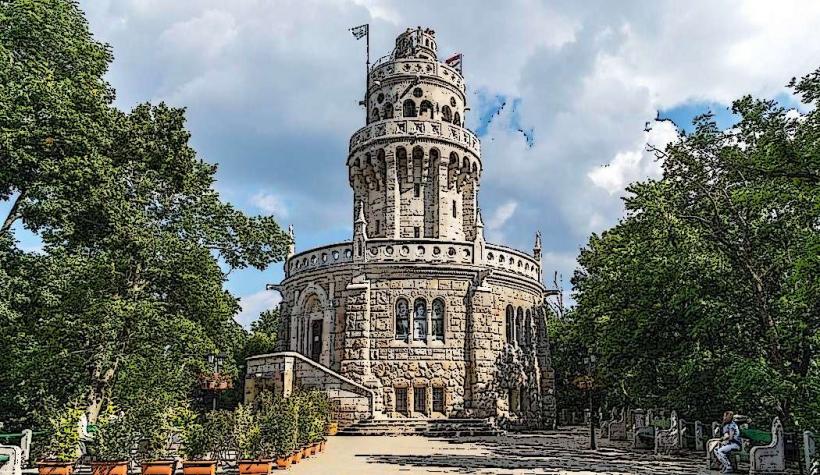Information
Landmark: Szent György HillCity: Veszpem
Country: Hungary
Continent: Europe
Szent György Hill (Saint George Hill) is a remarkable natural landmark located in the Balaton Uplands National Park, near Lake Balaton in western Hungary. Known for its unique geological formations, scenic hiking trails, and connection to local wine culture, it is a destination that appeals to nature lovers, geologists, and those seeking peaceful outdoor exploration.
Geological Significance
Basalt Columns:
- The hill is most famous for its basalt organ pipes, a natural phenomenon formed by the cooling and solidification of lava from volcanic activity millions of years ago.
- These towering basalt columns resemble organ pipes, creating a striking and iconic feature of the landscape.
Volcanic Origin:
- Szent György Hill is part of the Tapolca Basin, a region characterized by extinct volcanoes that shaped the area’s geography during the Miocene Epoch.
Karst Features:
- The hill also exhibits limestone and karst formations, adding to its geological diversity and attracting researchers and enthusiasts.
Natural Beauty and Biodiversity
Flora:
- The hill is covered in lush vegetation, including vineyards, oak forests, and Mediterranean-style shrubbery.
- In spring, wildflowers bloom, creating a colorful landscape.
Fauna:
- The area is home to diverse bird species, reptiles, and small mammals.
- The tranquility and protected status of the region provide a haven for wildlife.
Hiking and Activities
Hiking Trails:
- Several marked trails lead up and around the hill, offering varying levels of difficulty.
- The summit trail rewards hikers with panoramic views of the surrounding Tapolca Basin, Lake Balaton, and other nearby volcanic hills.
Scenic Views:
- From the top, visitors can see the iconic Badacsony Hill, Lake Balaton, and the charming vineyards and villages of the region.
Educational Walks:
- Informational signs along the trails explain the area’s geological history, local flora and fauna, and its cultural significance.
Photography:
- The basalt columns, combined with the hill's natural beauty and vistas, make it a favorite spot for photographers.
Wine Culture
Vineyards:
- Szent György Hill is part of the Badacsony wine region, renowned for its unique volcanic soil that imparts a distinctive character to the local wines.
- Grape varieties include Olaszrizling, Szürkebarát (Pinot Gris), and Kéknyelű, a rare Hungarian white grape.
Wine Tasting:
- Numerous family-run wineries and cellars are located on the hill, offering wine tasting experiences paired with local cuisine.
- Some trails lead directly through these vineyards, allowing visitors to combine hiking with wine exploration.
Cultural and Historical Importance
Name Origin:
- The hill is named after Saint George, the patron saint of soldiers and dragon slayers, symbolizing protection and resilience.
Local Legends:
- Folklore ties the basalt columns to mystical tales, often associating them with dragons or mythical creatures.
Historical Sites:
- Nearby ruins and churches offer a glimpse into the historical settlement of the region.
Visiting Szent György Hill
Location:
- Approximately 5 kilometers from Badacsonytördemic, the hill is easily accessible by car or public transportation.
Best Time to Visit:
- Spring and autumn offer the best weather for hiking, with mild temperatures and vibrant landscapes.
- Summer is ideal for combining a visit to the hill with a trip to Lake Balaton.
Entrance Fee:
- Access to the hiking trails and natural areas is typically free, but guided tours or wine tastings may have fees.
Amenities:
- Resting areas, picnic spots, and small eateries are available in the vicinity.
- Nearby villages offer accommodation, ranging from guesthouses to luxury stays.
Why Visit?
Szent György Hill is a unique blend of geological wonders, serene landscapes, and cultural richness. Whether you’re a hiker, wine enthusiast, or simply someone looking to experience the natural beauty of Hungary, this hill offers an unforgettable experience. It’s a place where history, nature, and tradition converge, making it a highlight of the Balaton Uplands.

